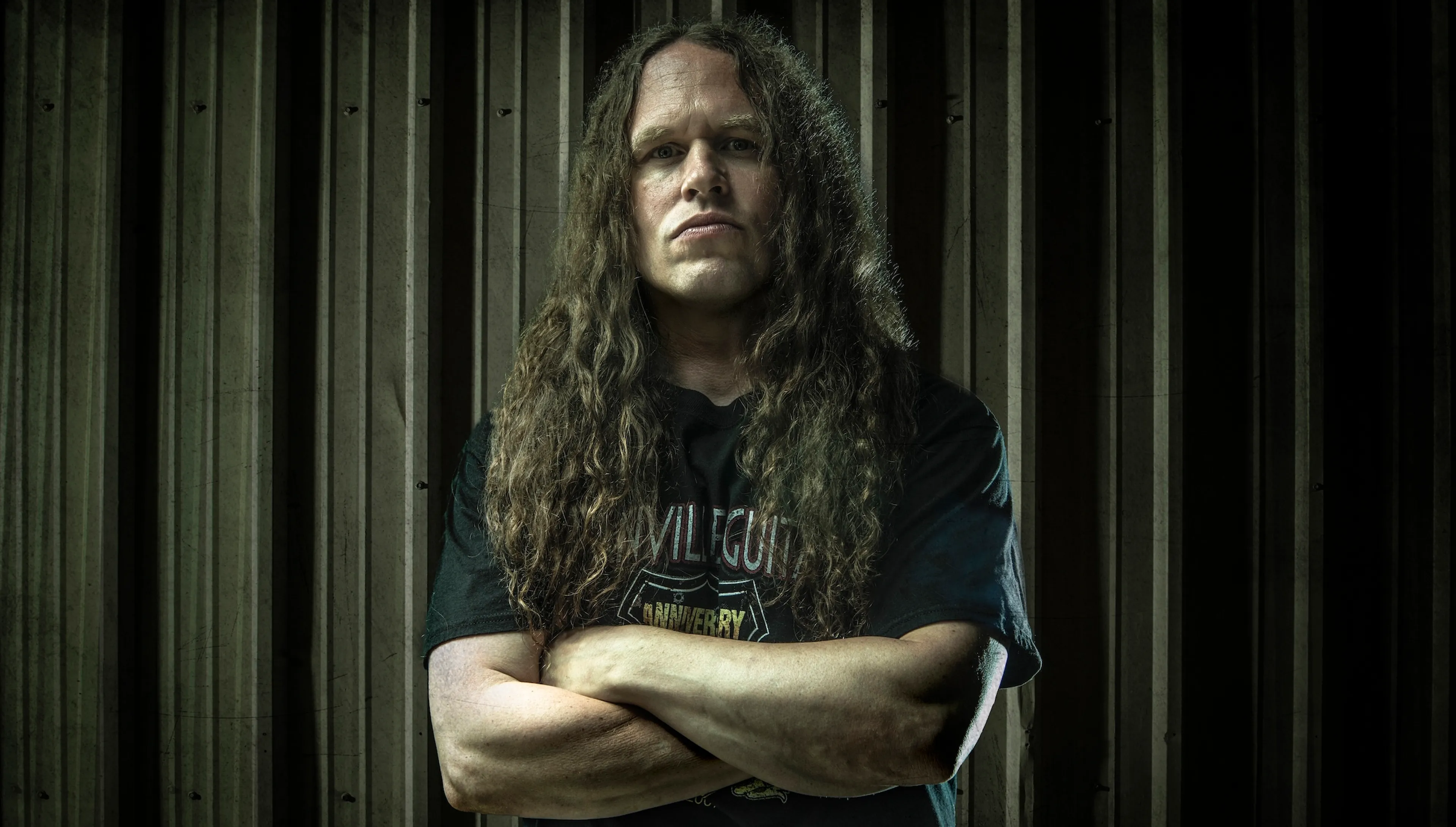You’ve also done the production for Hate Eternal -- what’s it like to produce your own band? What makes it different from working with a band you don’t play in?
When someone asks me what is the hardest album you have ever worked on, it’s usually an easy answer...the Hate Eternal albums. I wear so many hats in [Hate Eternal]: writing the lyrics, doing all the vocals, writing all the music with JJ, recording my guitars, and finally, producing, engineering and mixing the album. But recording my own band and albums in my own studio has been a dream of mine since I was a teenager. To have the opportunity to realize this over and over again it just humbles me, and makes me grateful to all whom have helped me get here over three decades of work. It is so hard to succeed in the music business with one career, let alone two.
What was your vision for Upon Desolate Sands? How much of your inspiration for the album came out of working with other bands in the studio?
My vision was to create a musical landscape of dynamics and creativity, pushing the boundaries of what we have accomplished before while staying true to the spirit and legacy of Hate Eternal. Preserving the integrity of the band is always important to me but expanding our sound is something I always want to do as to never repeat ourselves. The more I create music, the more I am able to reach depths not realized before. Like many musicians I believe I have a depth of emotion and pain that I tap into for inspiration, and with each album I dig deeper into that. My character and essence of who I am is very intricate and involved, and I always try to bring out that depth.
